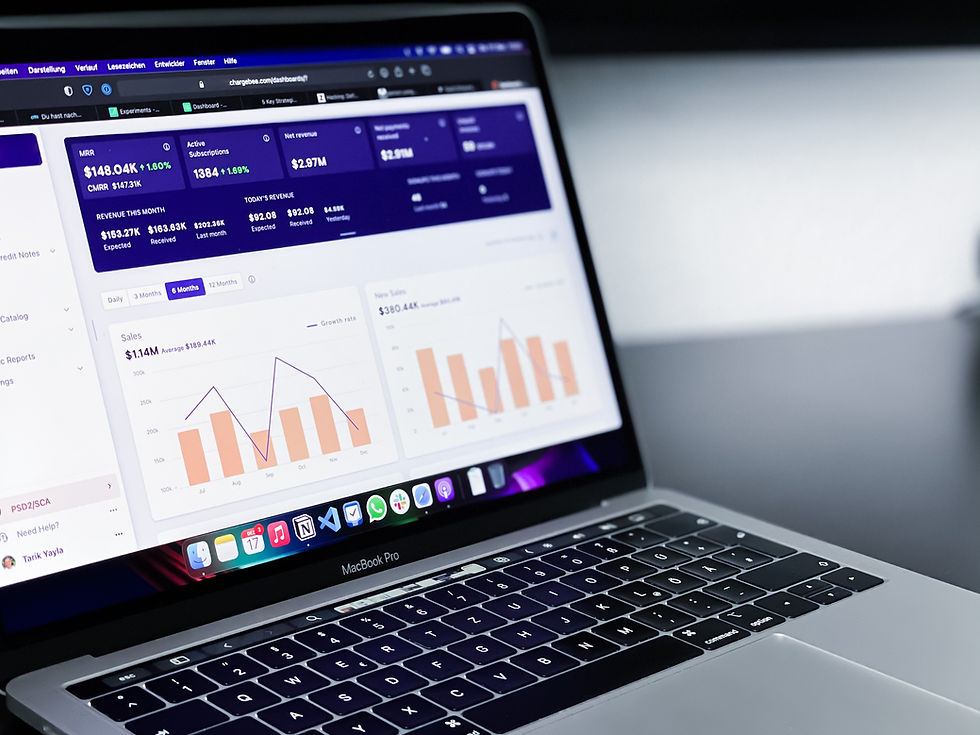The Integral Role of Data Governance Amidst Transformational Change
- Richard Keenlyside
- Oct 17, 2023
- 3 min read
Updated: May 16, 2025
TL;DR
Data governance is the backbone of any successful transformational change. When systems shift and organisations scale, effective data governance ensures alignment, reduces risk, and maintains trust. This article explores how structured data strategy empowers transformation, with real-world insights from diverse sectors.

Why Data Governance Matters During Transformation
In my 30+ years of guiding transformation across sectors like manufacturing, retail, utilities, and financial services, one thing remains consistent: data governance is often undervalued until it’s too late. Whether you're migrating to the cloud, merging entities, or streamlining supply chains, the integrity, lineage, and accountability of data must be governed rigorously.
Without robust governance, data silos, inconsistent reporting, and compliance breaches become inevitable—and costly.
What Is Data Governance in the Context of Transformation?
Data governance refers to the framework that ensures data quality, security, and usability across the enterprise. It includes defining ownership, data policies, standards, and lifecycle management. In transformational change, this becomes mission-critical.
When implementing enterprise-wide ERP like SAP S/4HANA or Oracle Fusion—systems I’ve delivered in global transformations—governance ensures that what enters the system is accurate and actionable, enabling clean migrations and reliable reporting.
Five Strategic Benefits of Strong Data Governance During Change
1. Risk Reduction and Compliance
During M&A or system migrations, poor governance exposes organisations to GDPR violations and operational failures. With the right governance, privacy, sovereignty, and compliance become strengths, not threats.
2. Operational Efficiency
At M.I. Dickson, we cut technology debt by £0.7M and automated 35% of reports by embedding Power BI dashboards—underpinned by solid data standards.
3. Decision-Making Confidence
You can’t make strategic calls on flawed data. During the FitFlop global ERP programme, we standardised global reporting to ensure leadership operated with confidence.
4. Data Monetisation
Data isn't just a by-product; it’s an asset. At Quollify, advisory work included monetisation strategies rooted in quality, governed data—from advertising models to AI-driven match analytics.
5. Future-Proofing
Establishing a data governance model early provides a foundation for AI, RPA, and analytics—tools I regularly deploy in large-scale change.
Common Pitfalls and How to Avoid Them
Lack of Ownership: Data requires accountable stewards—by domain, not just IT.
Over-engineering Governance: Too much policy, too little adoption. Start lean.
Technology-Led Strategy: Tooling is important, but governance must be driven by business outcomes, not platforms.
Neglecting Cultural Change: As with all transformation, people come first. Data literacy and change management must support your governance initiatives.
FAQs
Q: When should you start data governance in a transformation programme?
A: At the outset. Governance must underpin your discovery phase and run in parallel with technical design and implementation.
Q: What’s the difference between data management and data governance?
A: Governance sets the policies and accountability; management executes the processes.
Q: Can you outsource data governance?
A: Components, yes—like quality checks or lineage mapping. But ownership and strategy must remain internal.
Q: How do you measure success in data governance?
A: Define KPIs such as data accuracy rates, issue resolution times, and user satisfaction scores from reporting and analytics platforms.
Conclusion
In every boardroom discussion I’ve led—whether in the oil & gas sector or retail food manufacturing—the message remains clear: transformation fails without trustworthy data. And trustworthy data only exists with effective governance.
It’s time to stop viewing data governance as a checkbox activity and start treating it as the strategic enabler it truly is.
Richard Keenlyside is the Global CIO for the LoneStar Group and a former IT Director for J Sainsbury’s PLC.
Call me on +44(0) 1642 040 268 or email richard@rjk.info.




Comments